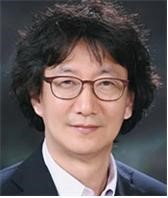- About
- Academics
-
Undergraduate Programs
- Civil and Environmental Engineering
- Architecture and Architectural Engineering
- Mechanical Engineering
- Industrial Engineering
- Energy Resources Engineering
- Nuclear Engineering
- Materials Science and Engineering
- Electrical and Computer Engineering
- Naval Architecture and Ocean Engineering
- Computer Science and Engineering
- Aerospace Engineering
- Chemical and Biological Engineering
-
Graduate Programs
- Civil and Environmental Engineering
- Architecture and Architectural Engineering
- Mechanical Engineering
- Industrial Engineering
- Energy Systems Engineering
- Materials Science and Engineering
- Electrical and Computer Engineering
- Naval Architecture and Ocean Engineering
- Computer Science and Engineering
- Chemical and Biological Engineering
- Aerospace Engineering
- Interdisciplinary Program in Technology, Management, Economics and Policy
- Interdisciplinary Program in Urban Design
- Interdisciplinary Program in Bioengineering
- Interdisciplinary Program in Artificial Intelligence
- Interdisciplinary Program in Intelligent Space and Aerospace Systems
- Chemical Convergence for Energy and Environment Major
- Multiscale Mechanics Design Major
- Hybrid Materials Major
- Double Degree Program
- Open Programs
-
Undergraduate Programs
- Campus Life
- Communication
- Prospective Students
- International Office
News
Professor Taik Soo Hahm of SNU College of Engineering's Department of Nuclear Engineering Selected as 8th Winner of the Chandrasekhar Award
-
Uploaded by
관리자
-
Upload Date
2021.08.25
-
Views
121
Professor Taik Soo Hahm of SNU College of Engineering's Department of Nuclear Engineering
Selected as 8th Winner of the Chandrasekhar Award
- Implies world recognition in the field of Korea’s plasma physics and nuclear fusion
-Along with the Maxwell Prize and Alfvén Prize, it is selected as one of the world's top three plasma physics prizes
-Along with the Maxwell Prize and Alfvén Prize, it is selected as one of the world's top three plasma physics prizes

▲ Professor Taik Soo Hahm of the Department of Nuclear Engineering
at Seoul National University’s College of Engineering
at Seoul National University’s College of Engineering
Seoul National University's College of Engineering (Dean Kookheon Char) announced on August 17 (Tuesday) that Professor Taik Soo Hahm of the Department of Nuclear Engineering has been selected as the 8th recipient of the Chandrasekhar Prize, one of the most prestigious academic awards in the field of plasma physics. This is a feat that suggests that Korea's capabilities in plasma physics and nuclear fusion have reached a level of global recognition.
The Division of Plasma Physics of the Association of Asia Pacific Physical Societies announced on August 10 (Tuesday) that Professor Taik Soo Hahm was selected to be awarded the 8th Chandrasekhar Prize - a prize that is given to a scientist who has made pioneering contributions to the field of plasma physics.
The Chandrasekhar Prize, named after Subrahmanyan Chandrasekhar who was awarded the Nobel Prize in Physics in 1983, was established in 2014 by the Division of Plasma Physics of the Association of Asia Pacific Physics Societies. It is considered one of the world's top three plasma physics awards along with the 'Maxwell Prize' in the field of Plasma Division of the American Physical Society and the 'Alfvén Prize' for the Plasma Physics Division of the European Physical Society.
The Association of Asia Pacific Physical Societies praised Professor Taik Soo Hahm for his pioneering contribution to the theoretical understanding of fusion plasma turbulence and sealing phenomena. Turbulence caused by irregular collective behavior of plasma in fusion devices is a major cause of poor plasma sealing performance, which is essential to understand and control turbulence in order to obtain high-temperature plasma. Professor Taik Soo Hahm, as a world-class master of the plasma turbulence theory, has led the world's theoretical research on this issue.
Professor Taik Soo Hahm earned his doctorate from Princeton University in 1984 and worked as a post-doctoral researcher at the University of Texas, and since 1986, he has redefined the theory of circular motion, the first principle that describes plasma turbulence. This is the foundation of the computational simulation codes of the theory of turning motion, which are a key part of plasma turbulence and containment research today.
Since then, by theoretically predicting turbulence suppression through flow shear stress and actively applying it to comparative analysis with experiments, it has contributed uniquely to the understanding of the fundamental mechanism of transport barrier formation, and is based on obtaining high-performance plasma of more than 100 million degrees from KSTAR.
Furthermore, a pioneering theoretical study of the non-proliferation and non-local characteristics of complex turbulence transport provided a deeper understanding of plasma turbulence and containment.
Professor Taik Soo Hahm was selected as a member of the American Physics Society in 1995, won the Kaul Award in 2005, and was selected as a PPPL scholar in 2006. Since moving to the position of a full-time professor of atomic nuclear engineering at Seoul National University's engineering university in 2011, he has greatly contributed to the development of plasma theoretical physics. From 2015 to 2017, he served as the head of the Institute of Fusion Energy (promoted to the Korea Institute of Fusion Energy in 2020), adding to his contributions to KSTAR theoretical physics research.